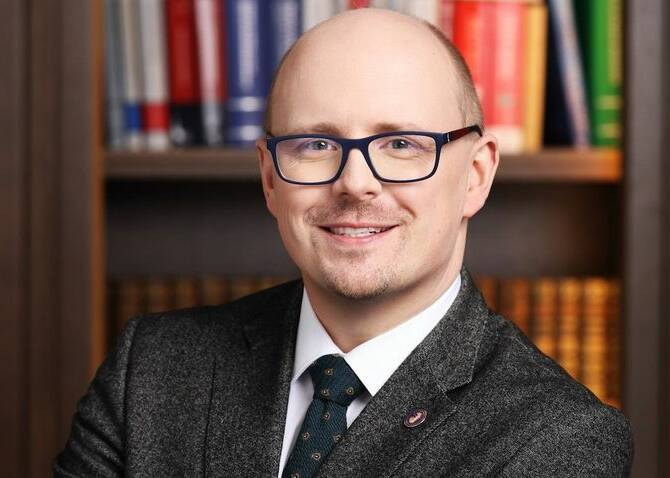This article has been published online by the Magyar Nemzet on April 1, 2021.
Orbán-Salvini-Morawiecki meeting in Budapest.
Prime Minister Viktor Orbán, Prime Minister Mateusz Morawiecki, and Leader of the Italian Northern League Matteo Salvini will present the charter defining common values and goals on Thursday. In his latest statement, Salvini denied that they would be announcing a new party formation. In any case, Brussels and the EPP will be paying close attention to the results of the conservative trio planning a new future for Europe’s right.
On Thursday, Polish Prime Minister Mateusz Morawiecki and Italian Northern League leader Matteo Salvini will visit Budapest. Prime Minister Viktor Orbán, party president of Fidesz, will be meeting with the conservative politicians; the meeting agenda will include European political alliance issues among the Polish Law and Justice (PiS) party, the Northern League, and Fidesz.
– said the Hungarian PM’s spokesman to MTI, a Hungarian news agency, yesterday. Viktor Orbán already announced the meeting weeks ago in his usual Friday radio interview, reiterating his intentions to reorganize the European right with the help of Poland and Italy. As is known, Fidesz left the European People’s Party (EPP) just under two weeks ago, after leaving the party’s European Parliament faction.
A new European identity
Matteo Salvini disclosed some details of the meeting to MTI: according to his statement, he along with the Polish and Hungarian PMs, will be discussing both the relaunch of the European Union after the epidemic, and the rethinking of the European identity.
“In Budapest we will be discussing the vision of the future of Europe and dealing with work, prosperity, security, identity, family, education, defense, migration, foreign policy, cooperation in healthcare, and the real lives of citizens” said the League leader. He added: together with Mateusz Morawiecki and Viktor Orbán, they will present a charter of their common values and goals.
At the same time, Salvini denied that they would be announcing a joint party now in Budapest. He revealed that he will soon embark on a Europe-wide tour to discuss these issues with potential allies across the continent. Recently, Katalin Novák, vice president of Fidesz responsible for foreign affairs said in an interview: cooperation with the League and PiS “does not necessarily mean a new structure or faction right now”.
A dream of unification
Though the institutional elements are still to come, Matteo Salvini envisioned quite an ambitious plan: the Italian politician disclosed his dream of uniting the Identity and Democracy (ID) faction with the European Conservatives and Reformists (ECR) group – thereby establishing the European Parliament’s second largest political group. Currently, the Italian Northern League is part of the Identity and Democracy faction at the European level, while the Polish ruling party belongs to the ECR. Smoothing out the fracture lines between the two groups is certainly not an easy task though. Our paper has reported that there are no significant political differences between Fidesz, the League and PiS; they can work together. However, according to our high- level government sources, there are parties in the aforementioned ID and ECR factions that, although quite dominant, provoke controversy even among the right.
“It is no coincidence that some of them belong to different European groups” – added our source, familiar with the situation, who also believes that there is still the interim possibility of Fidesz and their emerging bloc working as an ally of the center-right EPP.”
EPP problems will not fade away
According to our information from the European Parliament, the EPP will keep a sharp eye on the meeting and the contents of the joint charter of the emerging right bloc. It is questionable whether, based on the above line of reasoning, the party family can overcome the agglomerations that govern the EPP to the right. The matter was also discussed after a meeting between Austrian Chancellor Sebastian Kurz, Bulgarian Prime Minister Bojko Borisov, Slovenian Prime Minister Janez Janša, and Czech Prime Minister Andrei Babiš (the Kurz, Borisov, Janša trio belong to the EPP).
According to the Austrian Der Standard, when asked about a right-wing alliance with Viktor Orbán, the Bulgarian and Austrian EPP leaders replied negatively, while Janša left the question unanswered. Attacks against the Slovenian PM are increasingly intensifying from the left-liberal majority EP and, as was the case with the Hungarian ruling party, the EPP watches silently. (Our paper also documented this: last Friday, Janša was not allowed to broadcast a video about the state of the media in Slovenia during the EP’s Committee on Civil Liberties, so he instead just left the meeting.) Conservative sources have repeatedly warned against this before: problems within the EPP will not pass with the end of the Fidesz affair – other member parties will be caught in the crosshairs of the liberals as well.
Tamara Judi (Brussels)




